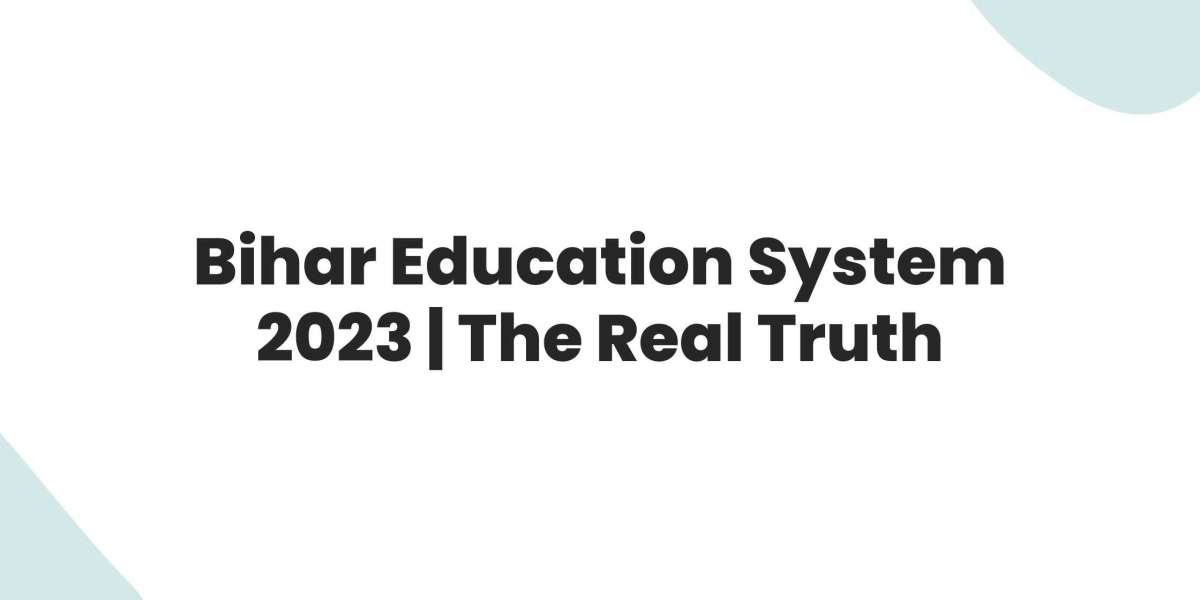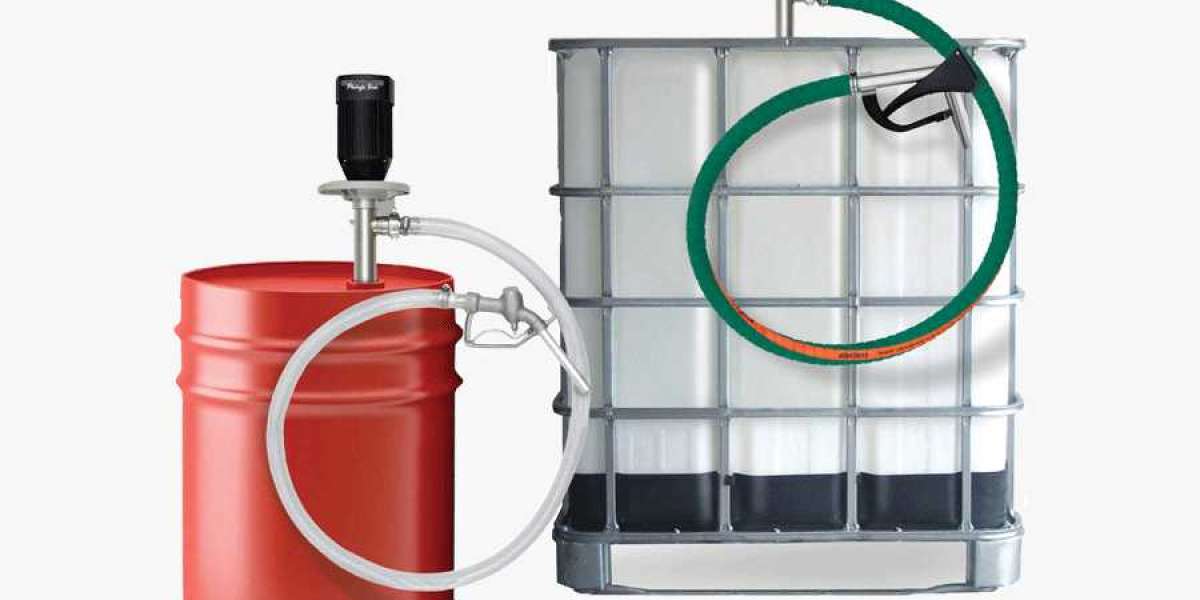Education plays a vital role in shaping the future of a society. In the Indian state of Bihar, education has been a subject of focus and reform for many years. With its rich cultural heritage and potential for growth, Bihar has been striving to improve its education system to provide better opportunities for its students. In this article, we will explore the Bihar education system, including its challenges, initiatives, and the role of various stakeholders.
Introduction to the Bihar Education System
Bihar, located in the eastern part of India, has a significant population and diverse communities. The state recognizes the importance of education in fostering socio-economic development and aims to provide quality education to all its citizens. The Bihar education system consists of primary, secondary, and higher education levels.
Overview of Primary Education in Bihar
Primary education forms the foundation of a child’s educational journey. In Bihar, there have been numerous challenges in ensuring access to quality education for all. Lack of infrastructure, shortage of teachers, and high dropout rates have been persistent issues. However, the government has taken several initiatives to address these challenges. Programs such as the Sarva Shiksha Abhiyan and the Mid-Day Meal Scheme have been implemented to promote enrollment, retention, and the overall development of students.
The Bihar education system refers to the educational framework and institutions in the state of Bihar, India. It plays a crucial role in shaping the academic development and overall growth of students in Bihar. Here is an introduction to the Bihar education system:
- Structure: The education system in Bihar follows a 10+2 structure, consisting of 10 years of primary and secondary education (Classes 1-10) and two years of senior secondary education (Classes 11-12).
- Primary Education: Primary education in Bihar starts with Class 1 and continues till Class 5. The focus is on imparting foundational knowledge and basic skills in subjects such as Mathematics, Science, Social Studies, English, and the regional language.
- Secondary Education: Secondary education in Bihar spans from Class 6 to Class 10. The curriculum broadens, and students study subjects like Mathematics, Science, Social Science, English, Hindi, and a regional language. At the end of Class 10, students appear for the Bihar Board Matriculation examination.
- Senior Secondary Education: After completing Class 10, students can opt for various streams in senior secondary education, including Science, Commerce, and Humanities. The Bihar Board conducts the Class 12 examination, also known as the Intermediate examination, at the end of Class 12.
- Bihar School Examination Board (BSEB): The Bihar School Examination Board (BSEB) is the primary regulatory body responsible for conducting board examinations, prescribing the curriculum, granting affiliations to schools, and promoting educational standards in the state. The BSEB oversees the Matriculation (Class 10) and Intermediate (Class 12) examinations.
- Vocational Education: Bihar also offers vocational education programs to equip students with practical skills and enhance their employability. These programs provide training in various trades, including agriculture, engineering, healthcare, tourism, and more.
- Government and Private Schools: The Bihar education system includes both government and private schools. Government schools are run by the state government and provide education at nominal fees or no cost. Private schools, on the other hand, are privately managed institutions that charge tuition fees.
- Education Initiatives: The Bihar government has launched several initiatives to improve the quality of education and increase access to education in the state. These initiatives include the establishment of model schools, provision of free textbooks, scholarships for meritorious students, teacher training programs, and infrastructure development.
- Higher Education: Bihar is home to several universities and colleges offering higher education across various disciplines. Prominent institutions include Patna University, Nalanda University, Magadh University, and Bihar Agricultural University.
- Government Support: The government of Bihar places great emphasis on promoting education and aims to provide quality education to all its residents. Efforts are being made to bridge the gender gap in education and ensure equal opportunities for all.
- The Bihar education system strives to provide students with a strong academic foundation, equip them with relevant skills, and prepare them for higher education and future career prospects. Ongoing reforms and initiatives are aimed at further enhancing the educational landscape in the state.
Secondary Education in Bihar
At the secondary education level, Bihar follows a board examination system. The Bihar School Examination Board conducts annual examinations for students in classes 10 and 12. These examinations play a crucial role in shaping students’ academic and career paths. To cater to the diverse needs and aspirations of students, vocational education programs have been introduced, providing practical skills and training for future employment opportunities. If you are a student of Bihar Board, then Bihar Board Solutions can be a very useful study aid for you. It will bring you the text book solutions of class 6 to 12.
Higher Education in Bihar
Bihar boasts several universities and colleges offering a wide range of courses and programs. Institutions like Patna University, Nalanda University, and Magadh University are renowned for their academic excellence. Professional courses in fields such as engineering, medicine, law, and management are also available, providing students with various career pathways. Bihar has witnessed a significant rise in the number of students pursuing higher education, reflecting the growing aspirations and awareness about the importance of knowledge and skills.
Quality of Education in Bihar
The quality of education in Bihar has been a topic of discussion and improvement efforts over the years. While there have been challenges, concerted efforts are being made to enhance the quality of education in the state. Here are some key points regarding the quality of education in Bihar:
- Infrastructure: Bihar has made progress in improving school infrastructure by constructing new school buildings, classrooms, libraries, laboratories, and providing basic amenities like clean water and sanitation facilities. These infrastructural developments contribute to creating a conducive learning environment.
- Teacher Training: The Bihar government has initiated various teacher training programs to enhance the skills and knowledge of educators. These programs focus on improving teaching methods, pedagogical techniques, subject expertise, and classroom management. The aim is to equip teachers with the necessary tools to deliver quality education.
- Curriculum Reforms: The Bihar School Examination Board (BSEB) has been actively involved in revising and updating the curriculum to align it with national standards and ensure relevance. Efforts are being made to introduce practical and application-based learning, promote critical thinking, and incorporate modern teaching methodologies.
- Examination Reforms: The BSEB has taken steps to improve the examination system by introducing measures to prevent malpractice and cheating during exams. The use of encrypted question papers, CCTV surveillance, and strict invigilation are some of the measures implemented to ensure fairness and maintain the integrity of the examination process.
- Digital Learning Initiatives: Bihar has embraced digital learning initiatives to enhance access to quality education, especially in remote areas. Initiatives like online classes, e-learning platforms, and digital resources have been introduced to supplement traditional classroom teaching and provide additional learning opportunities.
- Focus on Girls’ Education: Bihar has been actively working towards improving girls’ education and reducing the gender gap. Initiatives like scholarships, incentives, and awareness campaigns have been implemented to encourage girls to enroll in schools, stay in school, and complete their education.
- Skill Development: In addition to academic education, Bihar has placed a focus on skill development to equip students with practical skills for employment. Vocational training programs are being introduced to provide hands-on training in various trades, enhancing employability and entrepreneurship.
- Monitoring and Evaluation: The government has increased efforts to monitor and evaluate the quality of education through regular assessments, surveys, and feedback mechanisms. This helps identify areas for improvement and implement corrective measures
- While significant strides have been made, challenges such as inadequate infrastructure in some areas, shortage of qualified teachers, and socio-economic factors still exist. However, the commitment of the government, ongoing reforms, and collaborative efforts of various stakeholders are positively impacting the quality of education in Bihar.
- Efforts to enhance the quality of education in Bihar are aimed at providing students with a solid educational foundation, empowering them for higher education and better career prospects, and contributing to the overall development of the state.
Role of Technology in Bihar’s Education System
Technology has the potential to revolutionize education, making it more accessible and inclusive. In Bihar, various digital initiatives and e-learning platforms have been introduced to supplement traditional classroom teaching. These technological advancements have enabled students to access educational content remotely, bridging the gap between urban and rural areas. The integration of technology in education has not only enhanced learning outcomes but also prepared students for the digital age.
Technology plays a significant role in Bihar’s education system, transforming the way students learn, teachers teach, and educational institutions operate. Here are some key aspects highlighting the role of technology in Bihar’s education system:
- Digital Learning: Technology has enabled the implementation of digital learning initiatives in Bihar. Online platforms, educational websites, and learning management systems provide access to a wide range of educational resources, including video lectures, e-books, interactive quizzes, and educational apps. These resources supplement classroom teaching, enhance understanding, and facilitate self-paced learning.
- Virtual Classrooms: In response to the COVID-19 pandemic, virtual classrooms have gained prominence in Bihar. Online platforms and video conferencing tools allow teachers to conduct live classes, engage with students remotely, and facilitate interactive discussions. Virtual classrooms have ensured continuity of education during challenging times and have the potential to extend educational opportunities beyond physical boundaries.
- E-Learning and Online Courses: Bihar is witnessing the emergence of e-learning platforms that offer online courses, particularly for competitive exams and vocational training. These platforms provide flexibility in learning, allowing students to access educational content anytime and anywhere. Online courses also offer interactive assessments and progress tracking, facilitating personalized learning experiences.
- Access to Information: Technology has improved access to information for students and teachers in Bihar. Internet connectivity and digital devices have made it easier to explore a wide range of educational content, research materials, and global perspectives. Students can access online libraries, academic journals, and educational databases, enhancing their knowledge base.
- Interactive Learning Tools: Technology offers interactive learning tools, such as educational apps, simulations, and virtual reality (VR) experiences. These tools make learning engaging and immersive, helping students grasp complex concepts more effectively. They also cater to different learning styles and provide personalized learning experiences.
- Teacher Professional Development: Technology plays a crucial role in providing professional development opportunities for teachers in Bihar. Online workshops, webinars, and training programs help teachers enhance their pedagogical skills, learn about innovative teaching methods, and stay updated with the latest educational practices. Technology-enabled platforms also facilitate collaboration and resource sharing among teachers.
- Administrative Efficiency: Technology streamlines administrative processes in educational institutions. Digital platforms and software automate tasks such as student registration, attendance management, examination processes, and result generation. This reduces paperwork, improves efficiency, and enables better data management and analysis.
- Skill Development and Employment: Technology-driven skill development initiatives in Bihar provide training in areas such as information technology, digital marketing, data analysis, and computer programming. These programs equip students with industry-relevant skills, enhancing their employability and entrepreneurial potential in the digital age.
- Monitoring and Evaluation: Technology-enabled tools are used for monitoring and evaluating the progress of students, assessing their performance, and identifying areas for improvement. Data analytics and dashboards help track student attendance, academic performance, and provide insights for targeted interventions.
While technology offers numerous benefits, it is essential to address the digital divide and ensure equitable access to technology and internet connectivity for all students in Bihar. Collaborative efforts among the government, educational institutions, and stakeholders are required to leverage technology effectively, build digital infrastructure, and bridge the digital divide, thus maximizing its potential in Bihar’s education system.
Government Policies and Reforms
The Bihar government has implemented several policies and reforms to strengthen the education system. The Right to Education Act ensures free and compulsory education for children between the ages of 6 and 14. Skill development programs have been initiated to enhance employability and entrepreneurship among students. These measures aim to provide equal opportunities and create a favorable environment for learning and growth.
Private Education Sector in Bihar
While the government plays a significant role in education, the private sector also contributes to improving education standards in Bihar. Private schools and colleges have emerged as centers of excellence, providing quality education and innovative teaching methodologies. However, challenges such as affordability and equitable access remain, requiring collaborative efforts between the government and private sector to bridge the gap.
Importance of Parental Involvement and Community Support
Parental involvement and community support are crucial for the overall development of students. In Bihar, active participation of parents and community members in educational activities is encouraged. Awareness programs and workshops are conducted to educate parents about the importance of education and their role in supporting their child’s learning journey. Community-driven initiatives, such as mentoring programs and scholarships, also contribute to the holistic development of students.
Future Prospects and Ongoing Developments
The Bihar education system continues to evolve with ongoing developments and future prospects. The state government is focused on enhancing the quality of education, infrastructure, and teacher-student ratios. Efforts are being made to align the curriculum with industry requirements and foster innovation and research. With a focus on skill development and entrepreneurship, Bihar aims to create a workforce capable of contributing to the state’s growth and development.
Conclusion
The Bihar education system has witnessed significant transformations over the years, addressing various challenges and striving for excellence. With government initiatives, private sector participation, and community support, Bihar is making commendable progress in providing quality education to its students. The integration of technology, emphasis on skill development, and focus on inclusive education are paving the way for a brighter future. As Bihar continues its journey towards educational empowerment, it is crucial to nurture the potential of every child and create an environment where learning thrives.
FAQs
1. What are some of the challenges faced by the Bihar education system?
The Bihar education system faces challenges such as inadequate infrastructure, teacher shortages, high dropout rates, and socio-economic disparities.
2. What initiatives has the Bihar government taken to improve education?
The Bihar government has implemented programs like Sarva Shiksha Abhiyan, Mid-Day Meal Scheme, and vocational education programs to enhance access to quality education.
3. How has technology impacted education in Bihar?
Technology has played a transformative role in Bihar’s education system by introducing digital initiatives and e-learning platforms, improving accessibility and inclusivity.
4. Are there opportunities for higher education in Bihar?
Yes, Bihar has several universities and colleges offering a wide range of courses and programs in fields like engineering, medicine, law, and management.
5. How can parental involvement contribute to a child’s education in Bihar?
Active parental involvement in a child’s education in Bihar can contribute to their overall development by supporting their learning journey, attending workshops, and participating in community-driven initiatives.








